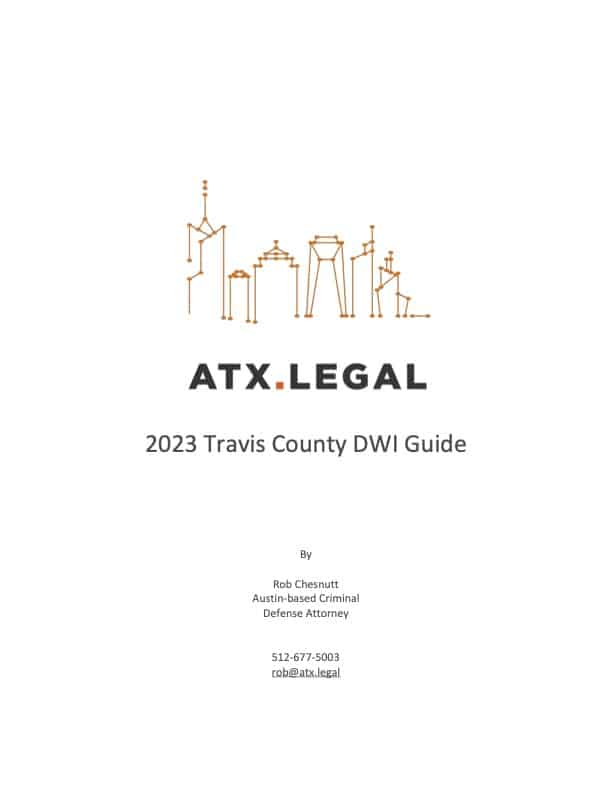2023 Travis County DWI Guide Part 10 - Criminal History
A conviction is forever. It doesn’t fall off your record after a certain amount of years. Unless later pardoned (extremely rare), or unless the laws change, there’s no way to remove a conviction. However, if your case is dismissed, or if you receive a deferred adjudication, there are ways to have the records destroyed, or otherwise limit access.
For DWIs, expunction is an option for dismissals, Class C refiles, Diversion Court, and refile to Obstructing a Roadway. Keep in mind that with an Obstructing refile, the DWI can be dismissed, but the Obstructing remains. May people will understand that the Obstructing conviction is a “legal fiction”, and will guess that you were originally charged with a DWI.
If you jumped to this section, please see the section on outcomes for more detailed descriptions of these options. Below, I discuss criminal records, generally. This is not specific to DWIs, but does provide some understanding into how criminal histories work in the state of Texas.
Anatomy of a Criminal Record
A criminal record consists of 3 parts. 1) The arrest, 2) time spent in custody, and 3) the disposition. As soon as you are arrested, the arrest and jail time (if any) is shown on your history. The disposition will appear only after the case concludes. An expunction or order of non-disclosure is available only if your cases are disposed in certain ways.
Under current law, if not expunged or sealed, the record of arrest and/or conviction will remain on your record forever.
Expunction
An expunction means that your criminal record is literally destroyed. No one should be able to find it, and you are legally permitted to deny that the arrest ever existed. It does not happen automatically. You must petition the court. I charge $1,200 flat fee for an expunction, which breaks down into about $400 court costs and $800 in attorney fees.
You can also have your expunction handled for free by the UT Expunction Project. The expunctions are handled by UT Law students under the direction of a licensed attorney. It is a very good program, but the downside is that you may have to wait, as they only do expunctions once or twice a year. See the Link below for more details.
An expunction is available only after a waiting period for the duration of the statute of limitations. However, the prosecutor can waive this waiting period in some cases. Once filed, the agencies that have records relating to the arrest, but destroy them or send them back to the Court. They have up to one year to do so, but often comply within 4-6 months. Note that, as a Federal Agency, the FBI keeps arrest records and is not bound by Texas Expunction Law. However, they voluntarily comply with Texas expunctions, typically automatically. If you have had a case expunged, but the FBI still maintains a record, you can contact them to have it removed.
Order of Non-disclosure (Sealing)
An order of non-disclosure is not as good as an expunction. Although your criminal history is sealed from public view, law enforcement, court clerks, and prosecutorial agencies will still have access to the records. Still, it can be beneficial for some to seal these records from public view.
An order of non-disclosure is available following a successful completion of deferred adjudication, and in limited cases after a conviction. You might be required to maintain an IID to be eligible for an order of non-disclosure, so you may need to weigh the cost/benefits if keeping your record clean is something that is important.

